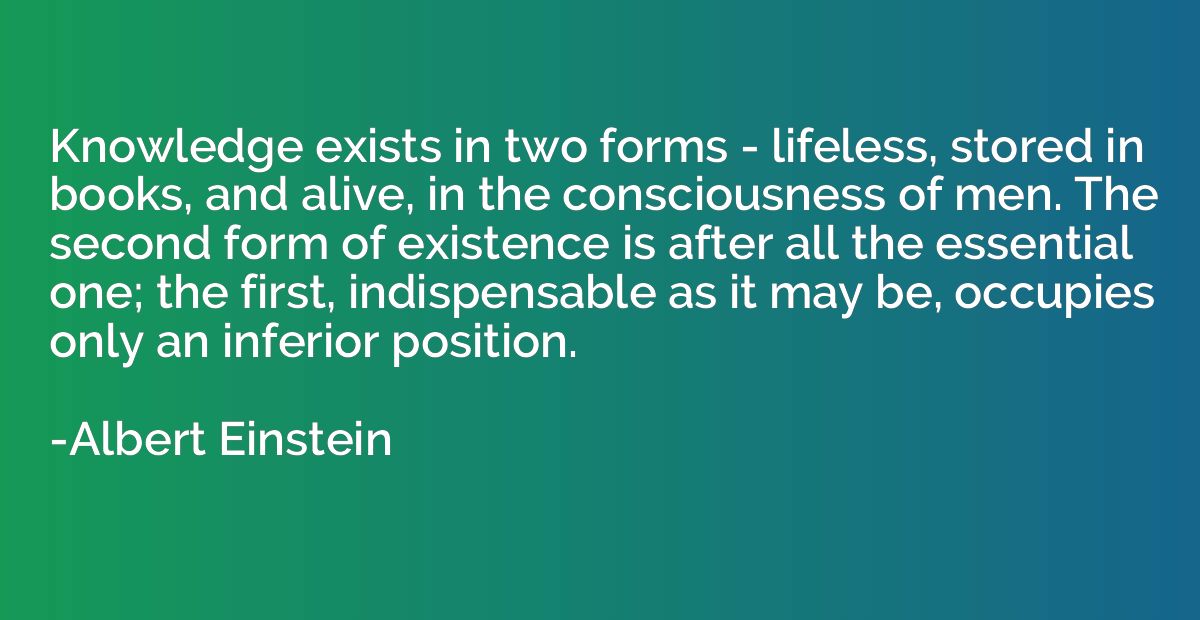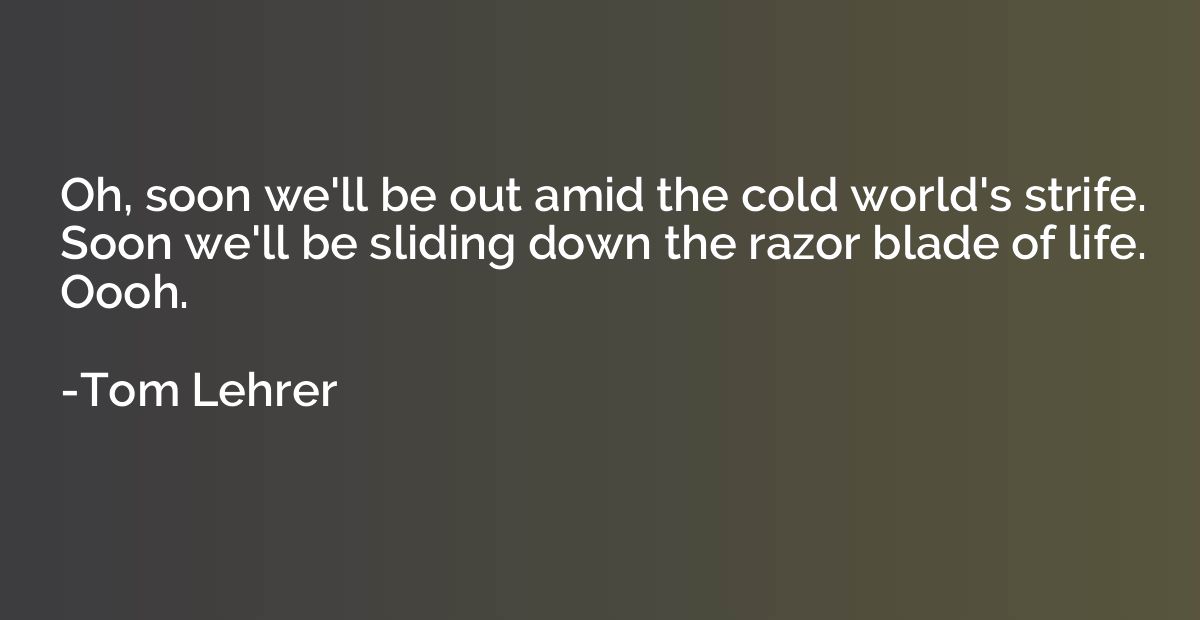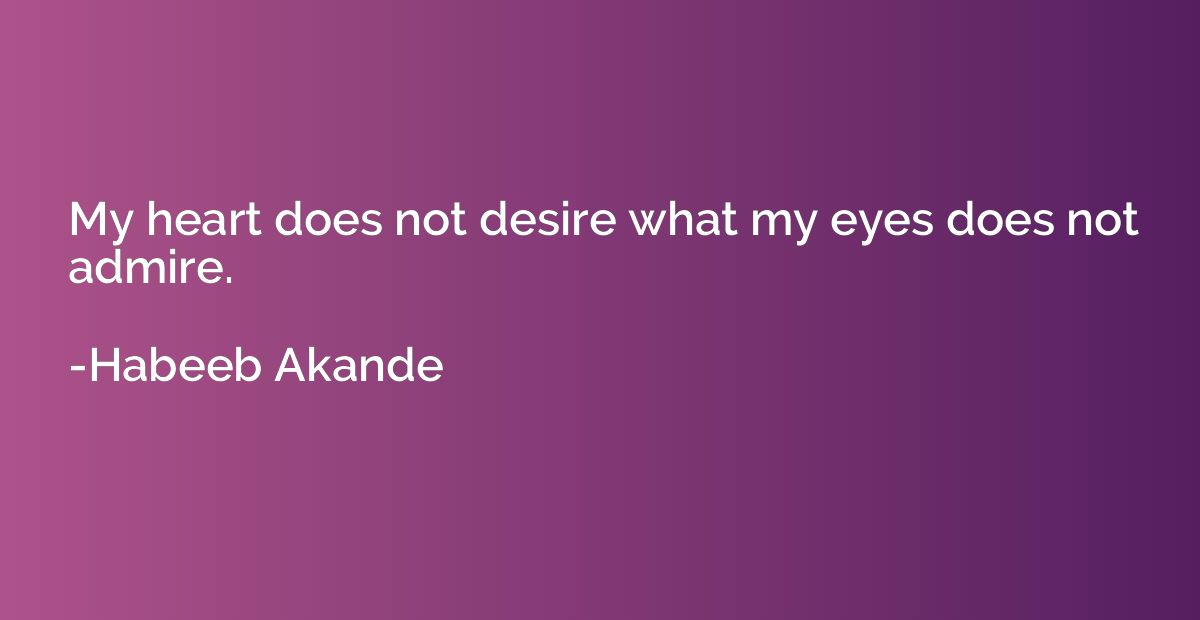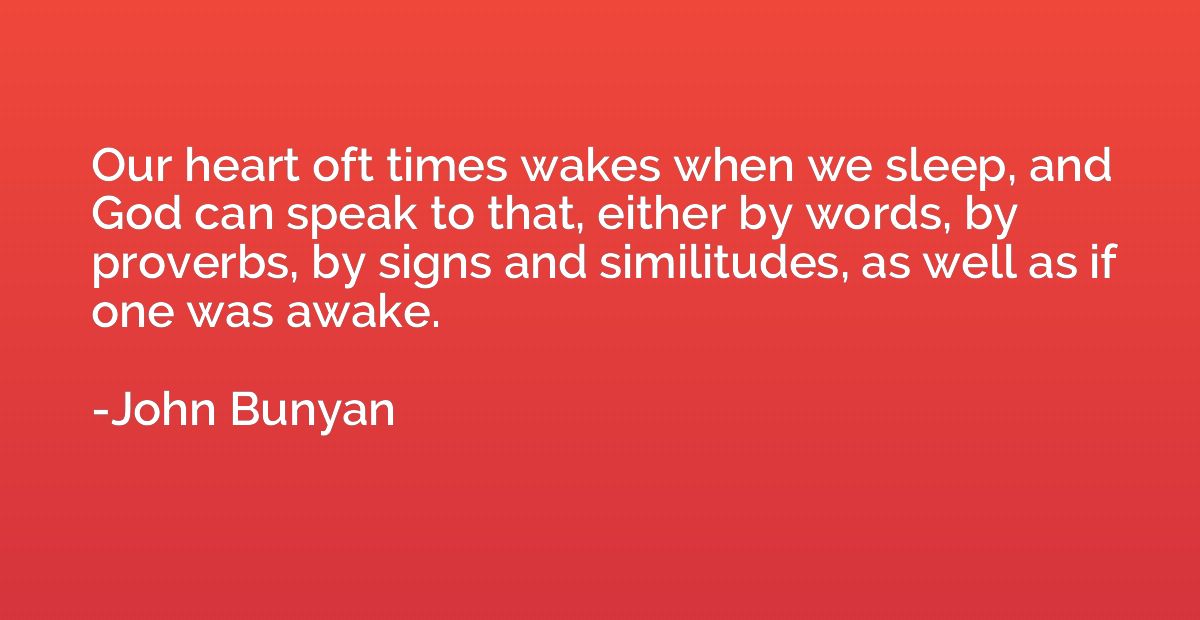Quote by Albert Einstein
Knowledge exists in two forms - lifeless, stored in books, and alive, in the consciousness of men. The second form of existence is after all the essential one; the first, indispensable as it may be, occupies only an inferior position.

Summary
This quote suggests that knowledge can be categorized into two forms: static knowledge found in books, and dynamic knowledge present in the awareness of individuals. It implies that while books are important for recording and preserving knowledge, the true essence of knowledge lies in the minds of people. The quote highlights the significance of human understanding and comprehension, emphasizing that the living knowledge within individuals is ultimately more essential and valuable than its static counterpart in books.














